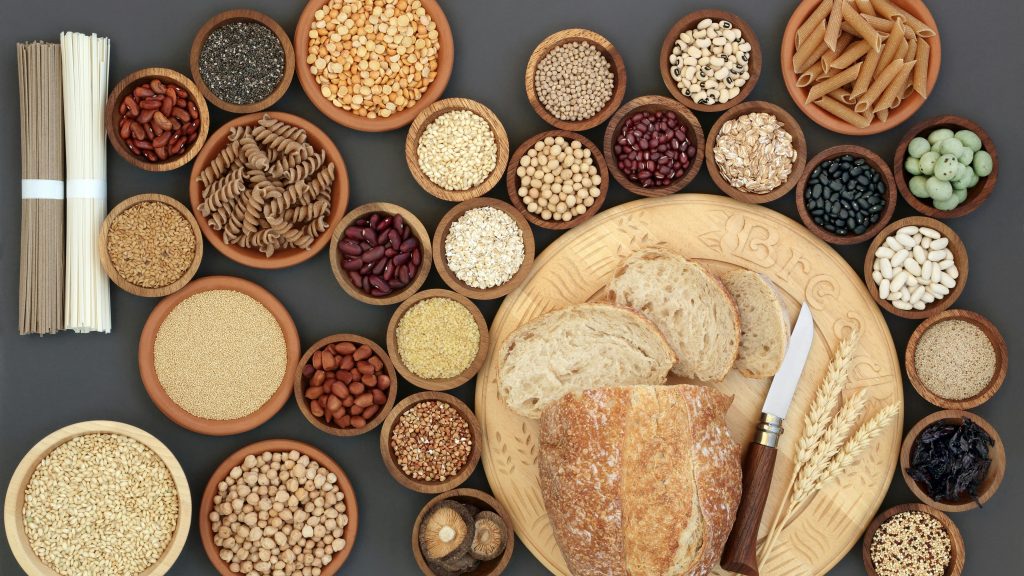In these times of uncertainty with an epidemic that is spreading across the globe there is a chance that you’re contemplating the best way to safeguard your family members and yourself from the spread of. Perhaps you’d like to go beyond social distancing by wearing masks, or cleaning your hands. You might be thinking about what supplements, food items or tinctures you need to take in order to boost your immunity to combat infection. You might be like me and are looking for information that is that is free of bias, hyperbole and exaggeration!

Following the new coronavirus, we on the team at Carb Manager want to provide you with exactly that!
My name is Tony O’Neill. I’m registered as a dietitian nutritionist (RDN) along with a doctor of Physical Therapy (DPT), and I am the Carb Manager’s personal nutritionist. Through this set of articles I will look at the scientific basis of the things we each can do to help support our immune systems during these difficult times – and without adverbial jargon, without exaggeration or trying to convince you to buy anything.
Carb Manager’s and my personal commitment to share the information you need in a scientific manner with evidence-based support. Links to references are provided in these articles to allow you to examine the information and trace the reasoning. We promise to avoid exaggeration and sensationalizing. This information is presented with sincere concern and an intention to provide honest information on nutrition and health not in the interest of offering you a product or entice you to click on a link, i.e. clickbait.
In this article, I’ll begin with an overview of the immune system and then go into the ways in which the Ketogenic Diet could impact the health of your immune system. In the next articles, I’ll explore aspects of nutrition that are crucial regardless of what diet you opt for, what supplements to take and lifestyle choices that help you stay healthy, and other aspects that affect the health of your immune system.

Let’s begin at the beginning.
The Immune System – Your Body’s Military
We all have heard of the fundamental concept about the immunity system. The immune system is described as the military part of the body. It is able to stop invaders (pathogens) from infiltrating and disrupting the delicate internal workings of your body. The linings of your skin as well as the linings of your digestive systems and your respiratory organs are outfitted with various mechanisms that stop the bad guys from entering. If the intruders are able to penetrate they are met by your military with aggression and immediately launches attacks to destroy the adversary. This is the natural immune system, and this defense is known as the inflammation response.
Your immune system keeps track of events. If it is confronted with an unknown adversary, it creates more efficient ways to defeat it. It also displays want signs. If you see this organization, destroy it immediately. When the next time an enemy appears your immune cells detect the enemy faster and kill it quicker and more efficiently. This is known as the adaptive immune system. By using its ability to adapt we can develop vaccines that teach our soldiers to kill specific enemies.
The inner workings of your immune system are extremely complex and require a healthy environment to function optimally. Your respiratory tract, skin and the gastrointestinal tract have to be healthy and in good condition. The immune system requires energy raw materials, manufacturing factories, highways, meetings and communication systems as well as elimination processes. These elements come from micro and macronutrients blood vessels, as well as organs. Your lifestyle, your sleep habits as well as your hydration level and sun exposure stress all affect how well your army is able to get the nutrition it needs to defeat the adversaries effectively.

We want to ensure we’re in the same boat here COVID-19 is a disease that is caused by the new coronavirus, SARS-CoV-2. “SARS” stands for severe acute respiratory syndrome, while “CoV” stands for coronavirus. “2” is the number that stands for coronavirus “2” is there because SARS-CoV-2 is genetically similar to a coronavirus that is not known, SARS-CoV, which I will refer to as SARS-CoV-1. We’ll go over the reasons for this in the future.
Supporting the Troops The Ketogenic Diet
A lot of you are on this blog because you’re looking for, or are currently following a low-carbohydrate or Ketogenic diet. Let’s begin with the Ketogenic Diet.
Is ketogenic diet good for your immune system?
It’s crucial to keep in mind that different people react differently to certain diets due to the genetics of their parents and age, as well as activity levels as well as the environment, stress level sleeping habits, general health as well as other variables that are known and undiscovered.
Individual differences in response to diets, such as diets like the Keto Diet, can also result from the food choices you make, your individual food sensitivities and food allergies, meal times as well as medications and supplements.

With these statements in mind One should be sure to take note of their health and monitor the response of their body to changes in diet. Always, it’s recommended to speak with a certified medical professional to establish the best diet for you, and also to observe your reaction. Particularly if you suffer from any type of health problem.
It is important to note that the Ketogenic Diet relies upon a particular macronutrient proportion, leaving lots of flexibility in assessing individual choices for food. You can choose to follow a healthy Ketogenic Diet, which includes fruits and vegetables that are not starchy, nuts fresh meats, lean fish, premium and heart healthy oils or you could choose to consume an unhealthy Ketogenic Diet with low-quality fats, meat products that are processed and no vegetables. Both are in the scope of Ketogenic diet, one might experience a different reaction depending on the way you decide to consume your food.
With all that said We’ll look into the information we have on the Ketogenic diet and the way it affects the immune system.
Although conclusive research is still inconclusive but it seems it is possible that Ketogenic Diet could boost your immune system:
Decreasing chronic systemic inflammationDecreasing fat massPromoting stabile blood sugarImproving immune cell function
While no diet is ideal and no diet is perfect, the Ketogenic diet can have some negatives for the immune system, which will be discussed at close of the article.
Decreases Systemic Chronic Inflammation (SCI)
It is complicated as well as beautiful. The immune system’s response to inflammation protects us from invaders pathogens and aids in healing. It’s a must. Without a system that is dynamic it is likely that we will die quickly.
But, the immune system needs to be in balance, and, at times, it fails. The normal inflammatory response takes place when there is a threat and then it goes away when the threat is removed. Sometimes however the inflammatory process can occur when the threat isn’t present, or continues to persist after the threat is gone. When an inflammation response develops and fails to disappear in the way the way it ought to, it could result in chronic systemic inflammation (SCI).
SCI is a mild chronic type of inflammation. It’s thought to be the cause of various chronic illnesses like type 2 diabetes heart disease, cardiovascular diseases, different kinds of cancers, and more. SCI can affect normal immunity and make people more susceptible to infection.
Body fat, stress and the exposure of toxins from environmental sources low nutrition as well as foods that promote inflammation like isolated sugars and processed carbohydrates – can all contribute to SCI.
What can you tell whether you suffer from SCI? (SCI)?
There are several markers that health professionals are able to test to obtain a clear picture of your overall inflammatory state. The most common ones that are found in studies include CRP with high sensitivity (CRP) as well as cancer necrosis factor (TNF) as well as interlukin-1 (IL-1) and interlukin-6 (IL-6) as well as the white blood cell (WBC) and Adiponectin. CRP is regarded as a highly accurate indicator of SCI and is an excellent predicator of cardiovascular disease. While findings are not conclusive, the majority of studies show there is evidence that the Ketogenic Diet can improve the biomarkers that are important to improve the level of inflammation. In this regard the carefully formulated Ketogenic Diet can help to maintain a functioning immune system.

Some Research
Studies conducted on patients suffering from type II diabetes who were on the Ketogenic diet for 2 years revealed significant reductions in WBC and CRP levels at the one and two year dates, while patients who were receiving standard treatment saw no changes in these values.Perissiou and co-workers examined obese people who took part in an exercise routine and followed either their regular food or Ketogenic Diet for eight weeks. Both groups experienced decreases in CRP levels (because exercise itself has been proven to lower CRP) however, those who were who were on the Ketogenic Diet saw greater reductions of CRP in comparison to those who ate their normal diet. That is, exercising and Keto reduces inflammation more effectively than a standard diet plus exercise. The obese participants in a study with no exercise regimen for 12 weeks experienced significant increase in anti-inflammatory molecules, adiponectin, by the 8 week mark. It was interesting to note that this group noticed an initial rise in CRP within the first two months of Ketogenic Diet, and gradually decreased before and returned to the baseline at the conclusion period. The downward trend could be sustained if the study continued. The researchers discovered that Ketogenic Diet led to a better inflammation status.Lastly an investigation of obese and overweight people on diets that included the Mediterranean Ketogenic Diet, including phytoextracts as well as a multivitamin, for four weeks, showed significant reductions in TNF Subjects who were following an Mediterranean Ketogenic phytoextract multivitamin Diet along with an omega-3 fatty acid supplement, showed even greater gains in TNF and further decreases in IL-1 and IL-6 and an impressive rise in the anti-inflammatory adiponectin.
Although these, and other similar studies, aren’t without flaws however, the general consensus suggests that Ketogenic Diet can improve the inflammatory status of patients.
How Does the Ketogenic Diet Decrease Inflammation?
The Ketogenic Diet is believed to be able to attain its anti-inflammatory capabilities by boosting antioxidants and also by activating certain immune cells and reducing others in a manner that reduces inflammation.

As we’ll see in the following section, using the Ketogenic Diet helps decrease fat mass. The reduction of excess fat mass reduces inflammation.
Another key anti-inflammatory element that is a part of Ketogenic diet is beta-hydroxybutyrate (BHB) the principal ketones used to provide energy in ketosis. BHB produces less reactive oxygen species (ROS) than glucose when it is processed to produce energy. This means less oxidative stress on your body. because oxidative stress triggers inflammation pathways, BHB produces less inflammatory potential.
In addition to giving your cells fuel, BHB also inhibits the pro-inflammatory receptor referred to in the NLRP3 inflammasome. This receptor triggers an inflammation cascade and is linked to type 2 heart disease, diabetes, Alzheimer’s disease, and many other chronic illnesses when it’s excessively active.
Back to COVID-19
In the end, SARS-CoV-1 (remember the close cousin of SARS-CoV-2?) is a tyrannical attack on our immune system partly through activation of it’s NLRP3 inflammasome. Because these guys are genetically identical to 79 and a lot of research suggests the SARS CoV-2 (COVID-19) is doing exactly the identical thing. So, eating diets like the Ketogenic diet that releases an abundance of BHB that blocks the NLRP3 inflammasome could decrease the severity of COVID-19 in those who have been diagnosed with COVID-19.
To be explicit I’m not suggesting you begin the Ketogenic Diet when you are diagnosed with the coronavirus. This is probably not the best moment to make drastic changes to your diet. However in the event that you’re following an Ketogenic Diet, this could be an option and a theoretical method that could help reduce the degree of symptoms caused by COVID-19. If you do become sick, it could be extremely beneficial to begin abstaining from foods that trigger inflammation, such as processed carbohydrates or isolated sugars, particularly in cases of the highest risk of developing a serious disease!
Learn From The Ketogenic Diet appears to decrease inflammation, as shown by a reduction in the inflammatory markers. This effect can increase the immune system’s effectiveness by helping to reduce the burden of chronic inflammation. The anti-inflammatory effect appears to be enhanced when you choose food items that match the Mediterranean Diet as well as Keto as well as the Mediterranean Diet. Regular exercise can enhance the anti-inflammatory benefits of the Ketogenic Diet. The symptoms of COVID-19 could be triggered by stimulation of NLRP3 inflammasomeBHB. Ketogenic Diet inhibits activation of the NLRP3 inflammasome, thereby reducing the severity of COVID-19.
Obesity has been recognized as one of the risk factors for COVID-19 hospitalization among patients who are less than 60. This means that COVID-19 infection is more severe for obese patients.
The human body is designed to store energy. If there is a surplus of calories in your diet the body stores those calories to be used on a rainy day. This is an essential adaptive capacity that has helped humanity to live through periods of scarcity of food. However, food that is with a high intake of processed carbohydrates as well as isolated sugars can set this ability into high gear by activating the hormonal cascade of weight-promoting peptides such as ghrelin and insulin.
The body is a great energy savers – only use the amount you require, and keep the remainder… for the rest of your life. This is because humans have a remarkable capacity for energy storage. As per the Guinness Book of World Records the man who was the most heaviest was at a WHOPPING 1,105 pounds. at his highest! This is essentially half an ounce stored energy!
Nowadays, in industrialized nations, not just are food items abundant however, we don’t have to put in a lot of effort (or even at all) to acquire it. It’s therefore extremely easy to consume excessive amounts. Processed food is intended to be delicious and generally high in energy (high calories) but are incredibly lacking in immune-supporting vitamins, phytonutrients and minerals. They are also often rich in refined carbohydrates, that can stimulate the hormone pathways that promote obesity. Consuming extremely palatable, energetic high, nutritionally deficient refined carbohydrate foods can lead to obesity.
What is Obesity?
Obesity is the term used in clinical practice for excess fat which results in an BMI of 30 or more.

I’m forced to pause here since I am aware that there are some of you who are angry at the idea of BMI. The BMI measure is not ideal as it only evaluates the weight and height, and does not consider the weight you are composed of, or body composition. Thus, certain people who are body builders, for instance may be classified incorrectly. Bodybuilders can be classified as obese or overweight by BMI alone however their weight is largely composed of muscle mass, not fat mass. This is why, on an individual basis, BMI should not be the sole factor in determining the weight status of an individual.
However, BMI provides an accurate weight-to-weight ratio for the majority of people. For those who are truly overweight, the accumulation of fat mass results in Adipocytes (cells which store fat) that become overly large and start to produce pro-inflammatory compounds. This leads to chronic inflammation of the system (SCI) which is believed to be the cause of obesity and chronic illnesses like cancer and type 2 diabetes.
In the preceding article, SCI impairs the immune system and increases the risk of infection. It shouldn’t be a surprise that obesity can also increase the chance of contracting infections and that overweight people are more susceptible to hospitalization due to COVID-19.
Dietary Ketogenic Diet is a successful method to reduce body fat, specifically visceral fat which is known to be more inflamatory than other fats. It is possible that the Ketogenic Diet helps reduce inflammation and may reduce the likelihood of developing an infection or the severity of infections. By reducing the impact of chronic systemic inflammation The immune system is able to better fight infections.
Get Rid of Obesity is a cause of chronic systemic inflammation. It is also associated with an higher risks and severity of infection such as COVID-19. Ketogenic Diet is effective in decreasing obesity. It also reduces inflammation. The reduction in obesity reduces the the risk of and severity of infection. helps stabilize blood Sugar.
Sugar (sugar) is an essential nutritional element for the human body. But if there’s excess sugar in blood, it can cause destruction on the entire body which includes our immune system. Patients with diabetes suffer from chronically high blood sugar levels. This could be due to the fact that they don’t produce enough insulin or their cells aren’t sensitive to insulin or a combination both. Insulin is the main ingredient that allows sugar to enter cells. Once sugar is in cells, it’s eliminated from blood. If sugar is unable to be absorbed into cells, it is forced to remain in bloodstream, leading to an increase in blood sugar, which is called hyperglycemia. Patients with diabetes suffer from chronically high blood sugar levels, which means they are at a more risk of infection when compared with the rest of us.

Furthermore surgical patients as well as critically sick patients with hyperglycemia are more susceptible to infection and are at greater risk of adverse medical outcomes. (*). This shows that even a short-term increase in hyperglycemia could affect our immune system. Thus, drinking drinks with sugar or eating sweets, cakes cereal, rice, bread or potatoes, along with other foods that trigger blood sugar spikes could cause negative effects to your immune system. A few blood sugar spikes in the course of a day are unlikely to cause an impact on your health, but the daily spikes are likely to have.
When there is too much sugar in blood the sugar begins to interact to other substances in the blood, including proteins. This result is known as an advanced glycation-related end products (AGEs). The AGEs may trigger inflammation pathways. What glucose binds to longer functions as it was supposed to. That means that whatever the thing was meant to accomplish that it was supposed to do, it is no longer able to perform. For instance, hemoglobin is an important protein found in red blood cells which carries oxygen around the human body. If blood sugar levels are high and hemoglobin is bound to glucose, it becomes ineffective and it is unable to transport oxygen efficiently. Doctors assess the amount oxygen-bound hemoglobin present in the blood and then use this measurement to determine if a person has the presence of diabetes. The measurement is known as HbA1c and is a rough estimate of blood sugar levels for the past three months.
Sugar can do the same to the components of the immune system. One example is the complement system which is a collection of proteins which play various vital roles in fighting infection. When glucose levels rise and bound to these proteins and reduce their ability to eliminate invaders.
Blood sugar levels that are elevated have been proven to interfere with the communication between immune cells, reduce the cell recruitment by white blood cells. hinder the immune system’s ability to recognize invaders, and hinder the function of the cells that kill invaders.

Furthermore, glucose metabolism generates ROS. (ROS). The greater the amount of glucose that is metabolized more, the greater the burden of inflammation and oxidative.
The immune-impaired effects can be observed in immediate (short-term) hyperglycemia. The effects increase in severity when blood sugar levels are higher in the long time that it is high.
To ensure that you have the best immune system, as well as the best and well-coordinated military it is essential that your blood sugar levels are stable and within the healthy range.
You can maintain a steady blood sugar levels by eating an exercise routine and eating a balanced diet regularly. A healthy, balanced diet with a low intake of soft drinks and refined carbohydrates is an important factor. A diet that is nutrient-dense and low in carbohydrates as well as eating the Mediterranean Diet are two good examples of healthy eating practices that can help improve your blood sugar levels. The American Diabetes Association (ADA) is an excellent source for those suffering from diabetes or who are who is interested in regulating their blood sugar levels. The ADA recently recommended the low-carbohydrate diet as a successful treatment for those suffering from type II diabetes.
Furthermore to that, Ketogenic Diet has demonstrated great potential in this field. The people who follow Keto tend to keep blood sugar within a healthy range and frequently report not suffering from the mid-day fatigue that is often associated with an uncontrollable crash of sugar. This is primarily due to Keto dieters aren’t taking in massive quantities of sugar at one time and are also avoiding the consumption of sugary food items. Instead, they consume very small quantities of sugar throughout the course of the day. In this scenario the primary energy source for your body changes between glucose (glucose) into fat. Utilizing fat for energy helps preserve blood sugar levels for the very few cells that truly require it.
Keto is believed to be effective for those suffering from diabetes. It aids them in losing weight, lower blood sugar levels, reduce HbA1c and also reduce chronic inflammation. This is expected to strengthen their immune system.
The TakeawayElevated blood sugar is associated with various components of our immune system. Patients who suffer from diabetes and have those with blood sugar levels that are not controlled are significantly more at risk for infection. Patients who undergo surgery and seriously sick patients who suffer from hyperglycemia suffer from worse medical outcomes. Diet and exercise be crucial in regulating blood sugar. Ketogenic diet is efficient in cutting down blood sugar in people who suffer from hyperglycemia. Ketogenic diet is successful in keeping the blood sugar level steady and reducing the burden of sugar on the immune system. the function of immune cells
The metabolic modifications that occur during the Ketogenic Diet can boost the function of certain immune cells. Researchers of Yale University found that mice that were fed the Ketogenic Diet experienced a distinct immune activation that shielded them from infection with influenza. Mice fed the standard high carbohydrate diet didn’t possess this protection.

Be cautious when making conclusions from studies on animals since they do not always accurately reflect what occurs in the human body. However, this study is exciting and shows that the Ketogenic diet could enhance immunity by directly stimulating immune cells.
The Take-AwayMice that were on the Ketogenic Diets were less susceptible to influenza viruses than mice eating a standard diet. It could be evidence to suggest that Ketogenic Diet directly boosts the immune system. Further studies are needed to prove that this effect is the same in humans. The possible downside
Food choices are an important element in that will determine the effectiveness the immune system. There’s even a scientific field that is devoted to analyzing the intricate influence nutrition exerts on the immune system known as nutritional immunology. While certain foods help to improve immune function, other foods affect our immune system. In addition your immune system needs various tools derived from the foods you consume and certain dietary habits do not have the instruments that the immune system needs for optimal functioning.
This is the possibility of a negative side effect from this Ketogenic Diet. One of the criticisms against this Ketogenic diet is the fact that it is extremely strict. On the other the other hand, its stifling nature is excellent, since it drastically limits the quantity of processed food you can consume. However it limits the food options in a way that may cause some Keto dieters to obtain enough nutrients for optimal the immune system.
The next part of the series on boosting your immune system will focus on what you must include in your daily diet to guarantee an optimal immune function, regardless of which diet plan you follow.
